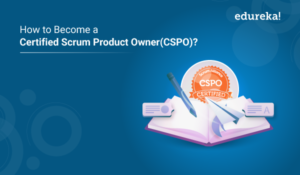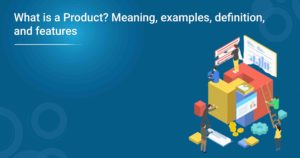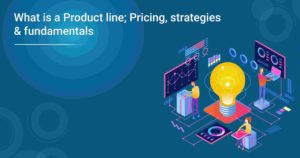As the digital economy continues to gain momentum, product management is emerging as a critical career option for professionals in the tech industry. In fact, according to LinkedIn, demand for product managers has grown at an average rate of 24% over the last five years. Everyone wants to know how to become a product manager and reap the benefits of this fulfilling career.
To be successful as a product manager and thrive in your role, you need to have a wide variety of skills. You’ll need to understand users and their needs, analyze market trends and user behaviour, think like an engineer (to build end-user features), understand processes and structures (so you can streamline them), and so much more.
This blog focuses on the roadmap of how to become a product manager and everything else you need to know to become something you aspire to.
Take A Dip Into Fundamentals of Product Management
Product management is the process of identifying a product’s core value, serving as a product’s chief steward, and building a roadmap for development. In other words, it’s about identifying a problem and finding a solution for it. The process of becoming a product manager begins with understanding your target customers. Once you know who will use your product, you can identify their problems and needs. You use this information to build something that solves those problems. Similarly, there are other fundamentals about product management that you need to begin with to become a successful and visionary product manager.
Top 10 Highest Paying Jobs For 2025 | Best Jobs For Future | Top High Paying Jobs 2025 | Edureka
Ready to discover the Top 10 Highest Paying Jobs for 2025? In this video, we’re uncovering the most lucrative and in-demand careers like AI & ML Engineers , Cybersecurity Engineers , Data Scientists , Cloud Architects , and Blockchain Developers! Not only will you learn about the skills you need to land these roles, but we’ll also reveal the salary potential for each job. Whether you’re looking to switch careers or climb the job ladder, this video will show you the path to a high-paying, future-proof career! Don’t miss out—watch now!
Brim Yourself With Adequate Skills
As we’ve already discussed, product managers must have many skills to succeed. However, that doesn’t mean you need to excel at everything right away. It’s a process, so you will acquire these skills over time as you progress through your career. It’s important to understand that no two product managers have the same skill set. That’s because the role is highly situational: you’ll need different skills depending on your industry, company, and product. That’s why it’s essential to ascertain where you want to get started and the kind of product manager you want to be. That way, you can select the skills that will best help you get there.
Essential skills required for a product manager:
User Empathy: The ability to understand how users think, feel, and behave. It includes experience with user research methods like surveys, interviews, focus groups, and usability testing.
Data Analysis: It is essential to collect, organize, and analyze data to inform product decisions. It includes experience with data visualization tools like Tableau or Google Data Studio.
Product Strategy: There is no product without a solid strategy. A product manager is responsible for creating and executing a product strategy that aligns with the company’s overarching business goals.
Basics of Web Development: Most of the products are web-based. So, a product manager should know how a website is created. They don’t need to be experts but should it is imperative to know the basics of some important programming languages such as JavaScript, HTML, and CSS.
Communication: Product managers need excellent communication skills to manage cross-functional teams and stakeholders. It includes written verbal, and presentation skills.
Critical And Analytical Thinking: One of the essential skills for a product manager is thinking critically and analytically. It means identifying problems, breaking them down into smaller pieces, and finding creative solutions
Excellent Market Research: Product managers must understand their target market, including customer needs, wants, and pain points. It requires experience with market research methods like surveys, interviews, and focus groups.
Also Read: 7 Dynamic Stages of the New-Age Product Development Process
Get Certified For An Upper Edge
There are no clear-cut paths to becoming a product manager. You don’t need any formal qualifications or certifications to make it as a product manager. However, having a staunch certification to speak for your skills can give you an edge in the field. And given the high demand for product manager roles, having a certification could be the difference between getting hired and getting passed over. There are a variety of product management certifications available. However, you need to choose the one that best serves your purpose and gives you an edge in your career.
How to choose the best product management certificate course?
Do your research: With so many certification courses available, it’s essential to do your research and select the one course that best adheres to your requirements. Consider the cost, duration, format, and curriculum before deciding.
Check the reviews: Once you’ve narrowed down your options, it’s time to start reading reviews. It will give you a better idea of the course and whether it’s worth your time and money.
Consider your career goals: When choosing a product management certification course, it’s essential to consider your career goals. Not all courses are created equal, so you must ensure the one you select aligns with your long-term goals.
So, have you learned the first step in the journey of how to become a product manager? The bottom line is that becoming a product manager requires hard work, experience, and skills. There is no one-size-fits-all path to becoming a product manager. However, getting certified is a brilliant way to start a career and give yourself an upper edge in the field.
Start Developing Your Project Portfolio
The perfect and smooth way to get your foot in the product management door is to start developing a portfolio of projects. As we’ve discussed, product managers don’t just create one product in their career — they develop an entire portfolio of projects across their product portfolio.
Start looking for opportunities where you can contribute to product initiatives and create a portfolio of projects. It can be at your current company or through side hustles (e.g., project-based freelancing). The goal should always be to show the hiring managers that you’re ready to make a move from a different role into product management.
How to create a brilliant portfolio?
Select your best work: When it comes to your portfolio, quality is more important than quantity. Choose your best work and focus on showcasing your skills, experience, and successes. You want to showcase the projects that you’re the proudest of and that will wow potential employers.
Organize your projects: After selecting your best projects that can be included in the portfolio, it’s time to start organizing them. By grouping similar projects together, you want to make it easy for potential employers to understand your skills and experience. Whenever necessary, use project management tools that will help keep track of your projects and make it easy for employers to see how you manage different projects.
Write a short description for each project: For each project in your portfolio, write a short description that outlines the project scope, your role, and the results. It will give potential employers a better understanding of your skills and experience and how you contributed to each project.
Include screenshots and videos: In addition to written descriptions, include screenshots and videos of your work to give potential employers a better sense of what you’ve accomplished. It will add visual interest to your portfolio and help employers see your work in action.
Promote your work: Once you’ve created your portfolio, be sure to promote it on your website and social media channels. You want potential employers to be able to easily find your work so they can see the value you bring to the table with your expertise.
By developing a portfolio of projects, you’ll be able to showcase your skills and experience to your potential employer and be a successful product manager. No doubt, you will emerge as a more attractive candidate when applying for jobs, and this will boost your chances of landing that dream job.
Also Read: Product Management Frameworks Every PM Must Know
What Will Be The Eligibility Criteria To Become A Product Manager?
There are no official criteria to become a product manager. However, you’ll need various skills, depending on your type of product management, to excel in the role. If you’re interested in being a product manager, it’s essential to understand the core skills that product managers need.
What Entails the Roles and Responsibilities Of A Product manager?
Product managers are responsible for developing new product lines and managing existing products through their entire lifecycle. But how to become a product manager? To become a proficient product manager, you’ll need to lead multiple teams, including marketers, designers, engineers, data analysts, and sales.
As a product manager, you will be a major contributor to the success of your product and ensure that it makes money for the company. When you’re in the role of product manager, you’ll need to possess all of the following skills:

Developing a product roadmap: It is a visual representation of your product’s core value, potential, and roadmap (i.e., the path it takes to profit). Product managers use a roadmap to communicate their plans to all stakeholders, including the executive team, designers, engineers, and sales.
Creating a foolproof plan: To launch a successful product, you need to create a foolproof plan. It includes identifying your target market, creating buyer personas, developing a marketing strategy, and designing a product that meets the needs of your target market.
Defining success metrics: It’s essential to set success metrics before you launch your product. It will help you track your progress and ensure that you’re on track to meet your goals. Success metrics include market share, customer satisfaction, and return on investment (ROI).
Building a great team: A product manager can only succeed with a strong team backed by expertise and contribution. It includes setting clear goals, providing feedback, and offering incentives. You’ll need to hire talented individuals and motivate them to do their best work.
Managing the product backlog: The product backlog lists all the features your product should have. Product managers use this list to determine which features to implement and which to cut.
Managing product roadblocks: Product roadblocks include engineering challenges, legal issues, and marketing concerns. Product managers have to solve these issues to keep their products on track.
Making Forecasts: To make informed decisions, product managers need to be able to make accurate forecasts. It includes predicting how much revenue your product will generate, how many units will be sold, and what the customer lifetime value (CLV) will be.
Analyzing data: Data is critical for decision-making in product management. You’ll need to be able to collect data, clean it, and then analyze it to make informed decisions about your product.
Why is Product Management a Thriving Field in India?
“According to a survey by Stanford University, over 80% of companies in India plan to increase their spending on technology this year.”
India remains the world’s fastest-growing economy and is also home to the world’s most innovative companies. If you’re looking to get into product management and want to work in India, there are some crucial things you should know about the field.
There’s a high demand for product managers in India: With an average annual salary of ₹16,00,000, product management is one of the most lucrative fields in the country.
You can find roles across various industries: While the tech industry employs the highest number of product managers in India, you can also find roles in other industries like eCommerce and healthcare.
There are several paths to break into the field: You can break into product management in India by working your way up the corporate ladder, switching fields, or changing industries. You can also try to get hired as a product manager straight out of college.
Conclusion
Product management is one of the most critical roles in any industry. As more companies shift toward a digital and technology-driven model, the demand for product managers has increased. If you’re interested in making a career shift into product management, you need to know what the role entails and what skills you need to succeed. There are no formal entry criteria for becoming a product manager. However, you’ll need experience in engineering, product design, and business. You should also strongly understand your target customer and how to solve their problems.
Are you looking for how to become a product manager? To get a smooth start in your career, our Advanced Executive Certificate in Product Management will help you gain important insights regarding product management. Whether you are a professional or a fresher, this course will suit your flexibility and offer you the momentum to become a successful product manager.
More Information:
Product Management Learning- Key Areas
11 Crucial Product Management Metrics and KPIs






_1668670867.jpg)





















